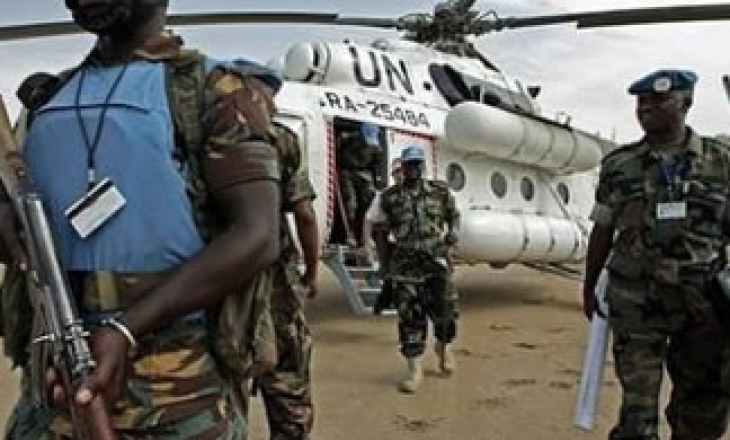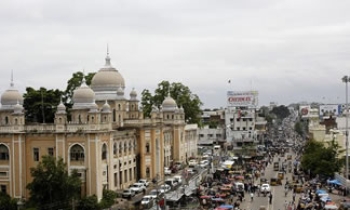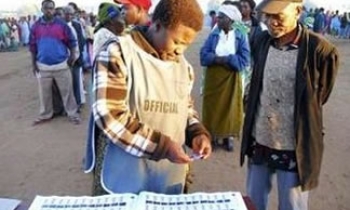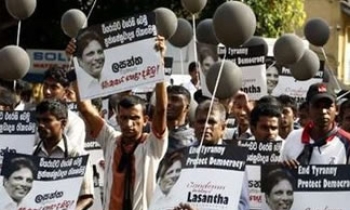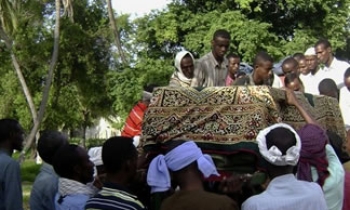The Sudanese embassy in Cairo is said to have launched an extensive media campaign in Egyptian and Arab mass media in the wake of the release and distribution of the documentary Darfur Destroyed. The documentary, which was created by Aegis Trust and released on February 10, featured credible and documented testimonies and confessions of perpetrators of war crimes committed in Darfur, particularly with regards to the planning, execution, financing as well as those to be held accountable for the perpetration of such crimes.
The Cairo Institute for Human Rights Studies (CIHRS) says the material presented in the film are merely a reflection of the conclusions of international missions and reports, including the reports of the United Nation’s Commission of Inquiry on Darfur. The only new addition it provides is documenting such violations on film. CIHRS affirms that it has reviewed the Arabic version of the film and made it available to Arab mass media.
Rather than providing substantial information that would refute what was presented in the film, the Sudanese embassy, according to CIHRS, resorted to releasing press statements and comments to newspapers that contain nothing but accusations. Such unfounded accusations were published in Almasry Alyoum, in Addostour and Al-Wafd. The embassy further issued press statements and gave interviews in the Gulf Emirates newspaper, the Kuwaiti News Agency, and Sudan’s Al-Ahdath newspaper as well as other Sudanese newspapers.
CIHRS says this media campaign only aims at diverting public attention from the ongoing crimes being committed in Darfur over the past six years that led to the death of about 300,000 people, the displacement of some 3 million, not to mention the rape of thousands of women. Furthermore, the campaign accuses those that merely aim to enlighten public opinion on the ongoing atrocities in Darfur of promoting "fabricated" information with the intention of jeopardizing Sudan’s interests and its stability. CIHRS got the lion’s share of these accusations.
Various websites and newspapers joined the media attack, including Al-Watany Al-Youm—the official newspaper of Egypt’s ruling political party—which, on February 17, 2009, described independent newspapers that have published articles on the film as being "funded by Zionist normalisation money!" The independent newspapers that published articles on the film are: Al-Badeel, Almasry Alyoum, Alyawm Assabi’, Al-Shorouq, Nahdet Masr, and Addostour.
The Sudanese government’s insistence on shielding its officials from accountability and punishment for the crimes perpetrated in Darfur is nothing but an attempt to distort the work of the International Criminal Court (ICC) and the organisations working with it, says CIHRS. The situation in Sudan has deteriorated to such an extent that some human rights activists— such as Amir Seliman, Othman Hemida and Abdel Moneim Aljak—have been detained and tortured for their mere cooperating with ICC.
In the context of the campaign, the trial of the Sudanese president has been portrayed as posing a threat to the national security of Sudan (and even Egypt) without providing any justification to such claim. Moreover, the campaign failed to recognise the fact that the real threat to Sudan lies in the acts of mass killings, genocide, rape and the mass displacement of the Sudanese people, says CIHRS.
Displacement on such a large scale has most certainly burdened neighbouring countries (including Egypt) and made them pay the price for crimes committed by a regime that has long been waging wars against its people first in the south of Sudan—until it was forced by the international community to bring it to an end—and then in Darfur. Nevertheless, the regime continued to persecute its people in northern Sudan, especially those opposing the launch of "Al-Jihad Al-Muqaddas" (Holy War) in the south and in Darfur,contends CIHRS.
Over the past six years, the Sudanese government has persistently denied its responsibility for the ongoing crimes in Darfur and has resorted to means aimed at distorting and obstructing all attempts and efforts exerted by either the United Nations or international organisations to uncover the truth and properly document it. Such efforts included a factfinding mission set up by the League of Arab States in 2004, which was ultimately forced to withhold its report in compliance with pressures exerted by the Sudanese Government—even though the report came to provide what can only be described as a "soft" criticism to the Sudanese Government.
Moreover, the Sudanese government has abandoned promises made to CIHRS whether in an official meeting with Sudanese Minister Ahmed Haroun in January 2006 or in a seminar organised by CIHRS in January 2007. In CIHRS’ seminar in January 2007, Haroun publicly promised to grant CIHRS with an official approval to its request to organize an Arab media campaign to investigate the situation in Darfur as well as to uncover whether what has been widely published by organizations and newspapers alike—that the Sudanese government describe as being "western" or "in conspiracy with the US and Israel"—are truly reflective of the situation in Darfur. Yet, such promises were quickly abandoned even though Haroun’s public announced in CIHRS’ 2007 seminar was made in the presence of the Sudanese Ambassador in Cairo as he was asked by CIHRS to justify why the Sudanese Government has failed to live up to its promises.
The charges brought against Sudan’s President Omar Al-Bashir by ICC do not automatically mean his conviction, believes CIHRS. In fact, such charges should force the Sudanese president to prepare a proper response to these accusations rather than continuing with his mocking attacks on the Court. It is essential in this context that he explains how 10,000 people were killed in Darfur—the recognised death toll figure by Al-Bashir himself as opposed to figures by international reports that put the death toll at a sheer 300,000.

